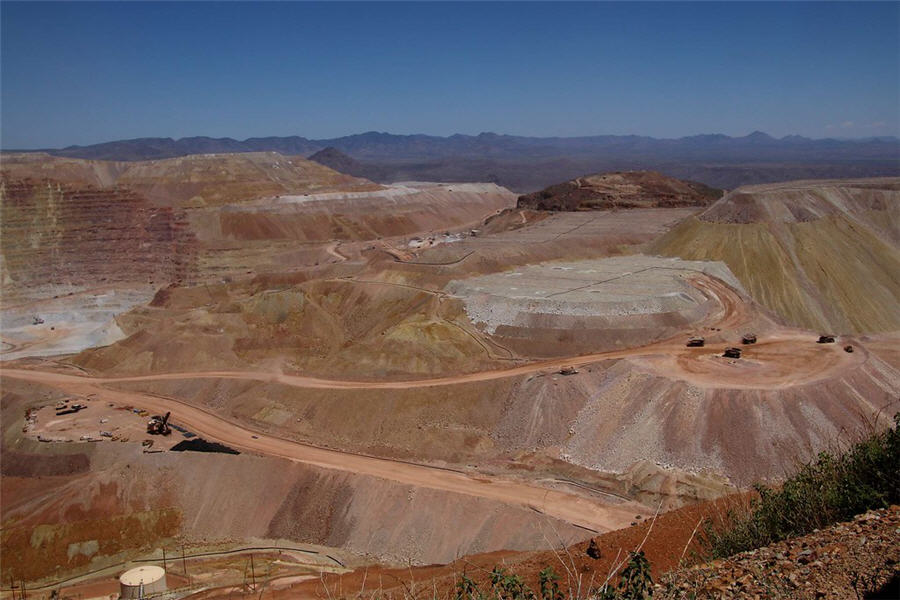Freeport-McMoRan looking for ways to expand copper production, CEO says

Freeport-McMoRan Inc.’s new boss says she’s focused on unlocking a large mine’s worth of copper from vast stockpiles of waste rock in an “aggressive” push to boost supply of the metal as global demand climbs.
The US copper giant has been generating strong profits in recent years from its operations in the US and Indonesia, drawing speculation it could put those returns toward takeovers after years on the sidelines. The firm spent much of the past decade cutting costs, reducing debt and resolving a yearslong dispute over ownership of Grasberg mine with Indonesia’s government.
Yet chief executive officer Kathleen Quirk said she doesn’t feel any pressure to follow rivals like BHP Group in seeking major, transformational acquisitions. Instead, the Arizona-based company is betting heavily on technology that aims to extract copper from waste rock it has accumulated over decades.
During the next three to five years, Quirk said the company hopes to generate annual production of as much as 800 million pounds of copper through that kind of processing technology — equal to one-fifth of its current total production.
“That’s the size of a big mine. That’s meaningful. Our team is working very aggressively to get that done,” Quirk, 61, said Tuesday in an interview in New York. “I’m really focused on this issue, because when we look around, we know how hard it is to develop new supply.”
Freeport’s ambitions respond to an increasingly urgent problem for the industry and the world. Copper is key to the energy transition, and annual demand is likely to double by 2035, according to some estimates. But metals producers have been hesitant to spend money on new mines, which are increasingly expensive to build.
Deals are similarly hard to swing. Last month, BHP abandoned a $49 billion bid for Anglo American Plc that would have marked the biggest mining deal in more than a decade.
Producers such as Freeport have turned to their own supplies of waste rock — built up over decades of mining — to extract lower concentrations of the metal they previously couldn’t access. BHP, Rio Tinto Group and Antofagasta Plc are all either developing their own similar technologies or working with outside parties to find ways to extract the metal.
“You’re looking at this situation with the market being so tight, and there are not obvious actionable projects that can fill that gap,” Quirk said. “That situation is causing us to be more innovative — to figure out how to help fill this gap.”
Freeport has already extracted an additional 200 million pounds of copper through the recovery process, and is targeting another 200 million pounds in the next two years. Developing the complex technology has stalled the firm’s push to hit 800 million pounds, but Quirk said the company is making progress.
“We think we’re going to get there — it’s just a matter of time,” said Quirk, who stepped into the top job Tuesday to become the only female CEO of a major mining company.
Quirk joined Freeport in 1989 and climbed the ranks before being named chief financial officer in 2003. During the past two decades she worked in lockstep with her CEO predecessor Richard Adkerson, who remains at Freeport as chairman.
Quirk inherits a company that’s riding high. Freeport’s shares have risen about 30% in the past year, outpacing a 17% increase in copper futures. The company has become one of the world’s largest producers of copper and the flagship US mining firm when western governments are pushing to secure supplies of critical metals and investors are piling into the copper market.
Nonetheless, Freeport is wrestling with challenges. In Arizona, the company has begun converting mining haul trucks into autonomous vehicles to combat a persistent labor crunch. Lower ore grades at aging mines in the US have also hiked expenses amid sticky inflation.
“One criticism of Freeport is that it has effectively become a copper ETF,” wrote Jefferies Financial Group Inc. analyst Christopher LaFemina in a June 9 note. “The question then is what can Ms. Quirk do to create additional value for shareholders even if the copper price does not rise?”
LaFemina said he wouldn’t be surprised if Freeport eventually pivots more to a focus on growth, including via M&A, as value-added opportunities will likely emerge.
The prospect of copper scarcity has prompted a wave of dealmaking across the industry, though Freeport hasn’t made a significant acquisition since its ill-fated diversification into offshore oil. Quirk said she isn’t opposed to acquisitions, but she isn’t prioritizing them either.
“Currently the world needs a lot of copper, and there aren’t a lot of willing sellers,” she said, adding that she’d still be willing to explore opportunities that would add value to Freeport. “But we don’t rely on that as our strategy.”
(By Jacob Lorinc)
{{ commodity.name }}
{{ post.title }}
{{ post.date }}




Comments